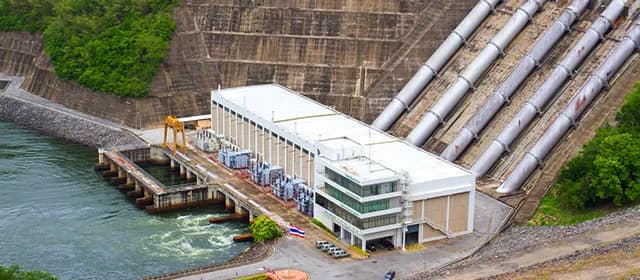Electric vehicles (EVs) depend on a set of critical minerals that enable key functions such as energy storage, power density, and motor performance. Demand for lithium, nickel, cobalt, graphite, and rare earth elements rises in tandem with global EV adoption. Geological constraints, geopolitical concentration, processing bottlenecks, and policy drivers influence how rapidly and securely the EV sector can scale. This blog examines the roles of critical minerals in EVs, supply chain challenges, policy responses, technological advances, and strategic risks as the world accelerates toward electrified transportation.
According to Kings Research, the global critical minerals market was valued at USD 320.43 billion in 2022 and is projected to reach USD 494.23 billion by 2030, growing at a CAGR of 5.69% from 2023 to 2030.
Critical Minerals: Definitions and Relevance
The Energy Act of 2020 empowers the U.S. government to define ‘critical minerals’, non-fuel minerals that carry high supply chain risk and serve essential roles in energy technologies. The 2023 Critical Materials Assessment identifies key minerals such as lithium, nickel, cobalt, copper, natural graphite, and rare earths like neodymium and dysprosium. Those minerals are central to battery chemistries, powertrains, and electronic control systems.
Battery chemistries such as NMC (nickel-manganese-cobalt) and NCA (nickel-cobalt-aluminum) depend heavily on nickel and cobalt for energy density and cycle life. Lithium and graphite (for the anode) facilitate energy storage. Rare earth magnets (particularly neodymium, praseodymium, and dysprosium) power permanent magnet motors in many EV models (Source: Congress.gov). Copper remains essential in wiring, busbars, and electrical connections.
Policy frameworks reinforce mineral criticality. The U.S. Department of Energy (DOE) prioritizes domestic processing capacity under its Critical Minerals and Materials Program to reduce dependence on foreign sources. In 2025, the DOE announced new funding opportunities nearing USD 1 billion aimed at expanding domestic production, processing, and recycling of battery and critical minerals (Source: www.hklaw.com).
Supply Chain Constraints and Risks
Mineral extraction and processing concentrate in particular geographies, creating exposure to geopolitical shifts. China dominates refined processing for rare earths and graphite. African countries supply cobalt and some nickel, often under unstable regulatory regimes.
Processing capacity limitations impose bottlenecks. Many raw deposits require complex refining, chemical separation, or purification to reach battery-grade standards. The 2023 Critical Materials Assessment references potential supply chain bottlenecks for rare earths and battery minerals. Geological uncertainty further complicates planning. A recent study uses partially observable Markov decision processes to manage uncertainty in lithium resource estimates and optimize sourcing decisions under risk.
Material quality inconsistency represents additional risk. Graphite supply is heavily concentrated: over 92 percent of global anode materials are produced in China. Cost structures differ substantially between regions, making new producers less competitive without policy support. Some battery metal projects require subsidies or favorable regulation to overcome cost disadvantages.
EV manufacturers must satisfy policy constraints on mineral sourcing. U.S. Inflation Reduction Act (IRA) rules require a growing share of battery minerals to be extracted or processed in the U.S. or in countries with free trade agreements. Rules on future eligibility penalize the use of minerals from nations of concern (Source: home.treasury.gov). That structure pressures automakers to align sourcing decisions with geography and supply chain transparency.
Technological and Policy Responses
Governments and industry have deployed policy levers to mitigate mineral risk and stimulate domestic capacity. DOE’s Critical Materials and Materials Program aims to build U.S. extraction, refining, recycling, and processing infrastructure. In August 2025, the DOE issued funding opportunity notices across battery materials, rare earth recovery, and byproduct extraction. The U.S. Department of the Interior launched an initiative to recover critical minerals from mine waste, tailings, and abandoned sites to unlock a secondary supply.
Private companies are responding with strategic investments. American Battery Technology Company secured a $20 million U.S. tax credit toward its battery recycling facility, advancing circularity in critical mineral supply. MP Materials operates the Mountain Pass rare earth mine in the U.S., providing rare earth oxides and metals for EV motors.
Automakers and battery firms push innovations: direct lithium extraction (DLE) techniques reduce water usage and speed recovery. Solid-state or lithium-sulfur chemistries may reduce reliance on cobalt or nickel. Recycling and closed-loop recovery aim to recapture lithium, nickel, and cobalt from end-of-life batteries.
Policy alignment with industrial incentives helps close gaps. IRA rules that tie consumer EV tax credits to qualifying mineral sourcing raise alignment between demand and supply.
Strategic Imperatives and Risks
Mineral supply constraints may slow EV deployment if scaling cannot keep pace. One model estimates that mineral production capacity in the U.S. and allied nations could limit output to 5.09 million EV batteries between 2027 and 2032 under strict sourcing rules, potentially short of demand under aggressive emission standards. Supply shortfalls could push automakers toward alternative technologies or hybrid models.
Heavy reliance on a few geographies or processing chokepoints elevates vulnerability to trade disruptions, export restrictions, or geopolitical tension. Overdependence on China for refined supply remains a systemic risk.
Regulatory and permitting delays for new mining or processing projects add lead time risk. Environmental opposition, land use issues, and social impacts may slow project development. Accounting for lifecycle carbon impacts, social license concerns, waste management, and water usage complicates project approval.
Technological uncertainty persists. Novel battery chemistries might shift mineral demand profiles. But premature transitions without a stable supply may destabilize entire ecosystems. Overinvestment in one mineral segment may leave producers stranded if market or technology changes.
Supply chain traceability and auditability remain critical. Automakers and regulators demand transparent audit trails of mineral provenance. Fabrication and recycling systems that lack verification may face penalties or disqualification under tax credit regimes.
Regional Trends and Case Examples
The United States represents a focal point of policy leverage. The IRA’s mineral sourcing rules push domestic and allied processors to scale. Government funding through DOE encourages new capacity. The Department of Energy’s announcements around critical minerals reflect a strategic priority.
China continues to dominate refined material processing, which exerts global influence over pricing and availability. Some nations aim to diversify supply chains away from that dominance. The U.S. dependence on foreign refined supplies constitutes a national security focus.
European Union research programs and industrial incentives support battery manufacturing within Europe. Public funding, regulation, and immigration of battery gigafactories encourage vertical integration of mineral refining, cathode production, and battery assembly.
Australia and Canada supply lithium, cobalt, and nickel raw ores and strengthen efforts to retain refining within their jurisdiction. Joint international critical mineral strategies aim to build resilient, like-minded supply chains.
Future Outlook
Mineral demand will increase sharply. EV growth trajectories, grid storage needs, and renewable generation impose surging demand for lithium, nickel, cobalt, and graphite. Policy requirements linking mineral sourcing to incentives will accelerate investment in domestic processing and recycling.
Recycling and reuse will become more critical. End-of-life battery reclamation can reduce reliance on primary mining. Closed-loop systems will recover lithium, cobalt, nickel, and graphite, easing demand pressure.
New extraction technologies that reduce environmental impact, such as direct lithium extraction or low-impact rare earth recovery, will gain traction. Automation, AI, and advanced separation chemistry will improve yield and reduce cost.
Shifts in battery chemistries may alter mineral demand patterns. Solid state, sodium-ion, or other advanced chemistries may reduce dependence on scarce elements. That transition requires careful supply chain flexibility.
Continued policy alignment across geographies will influence how supply, innovation, and demand evolve. Aligning incentives, standardizing traceability criteria, and harmonizing permitting processes will be foundational for risk mitigation.
Conclusion
Critical minerals power the EV revolution through enabling batteries, motors, and electronics. Supply chain constraints, geopolitical concentration, processing limitations, and regulatory demands pose significant challenges. Governments and industry respond with funding, policy alignment, innovation, and recycling strategies.
Successful scaling of EV deployment depends on resolving mineral bottlenecks, achieving sourcing transparency, and anticipating technological transitions. The path forward requires strategic cooperation, technological advancement, and resilient supply chain design to ensure that critical minerals truly empower the EV era.



